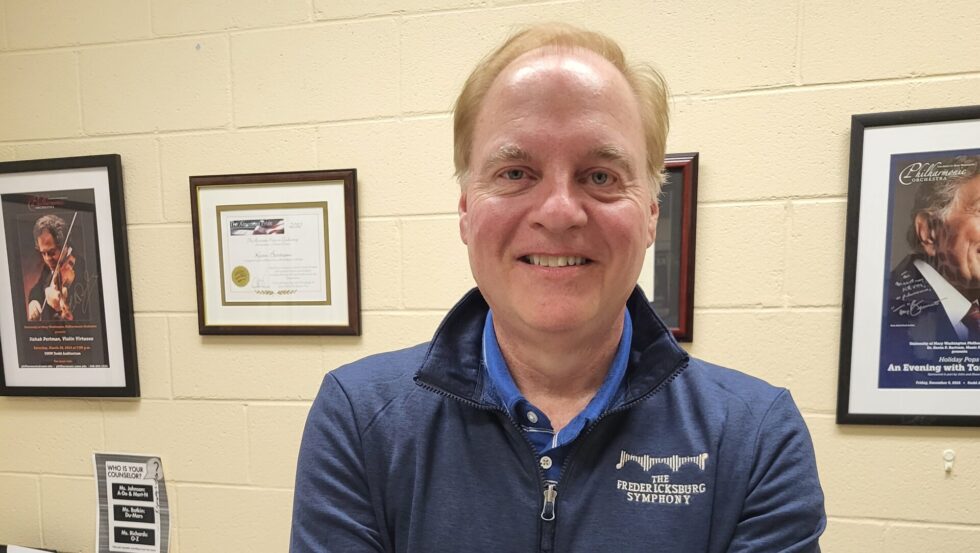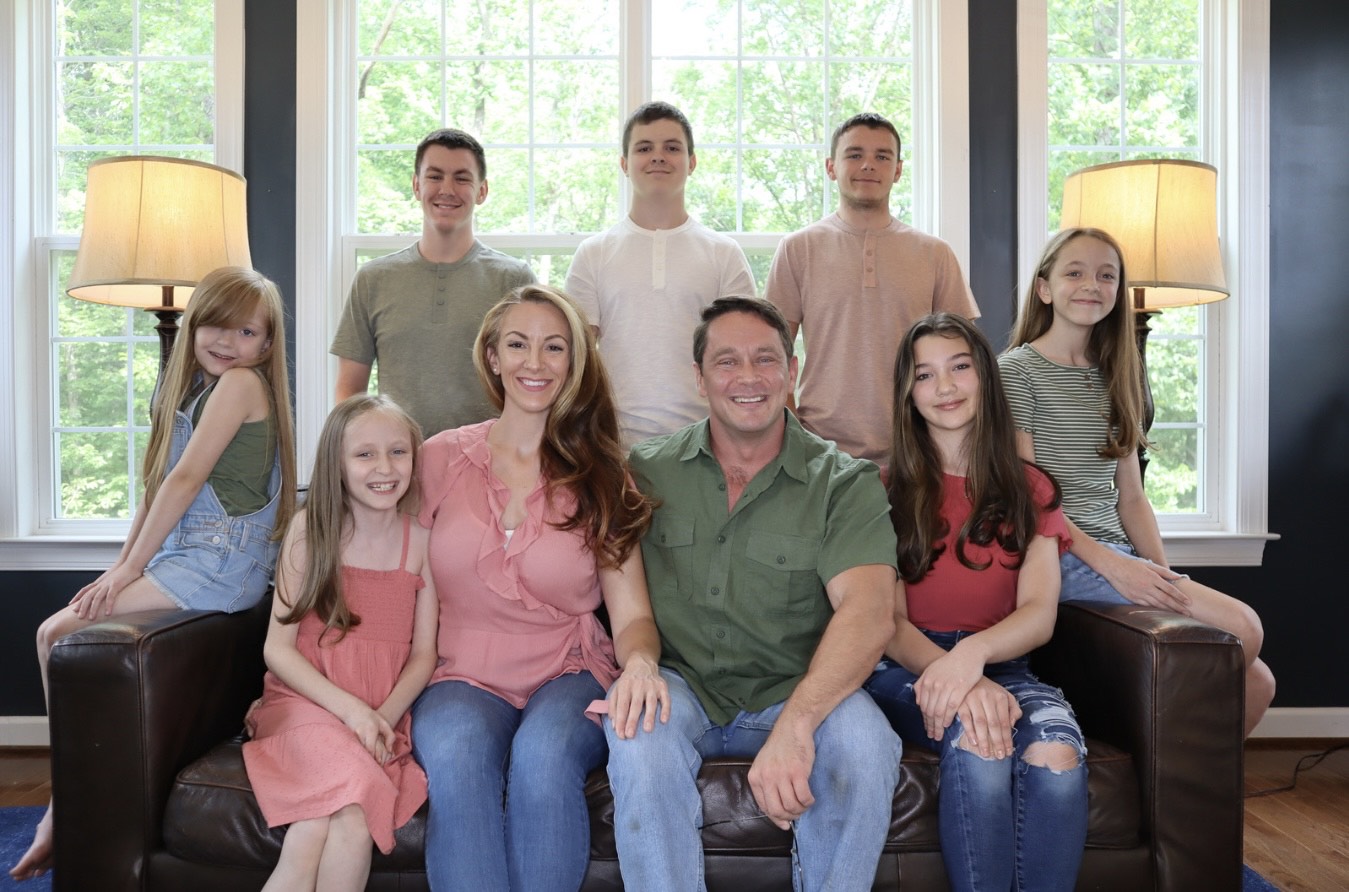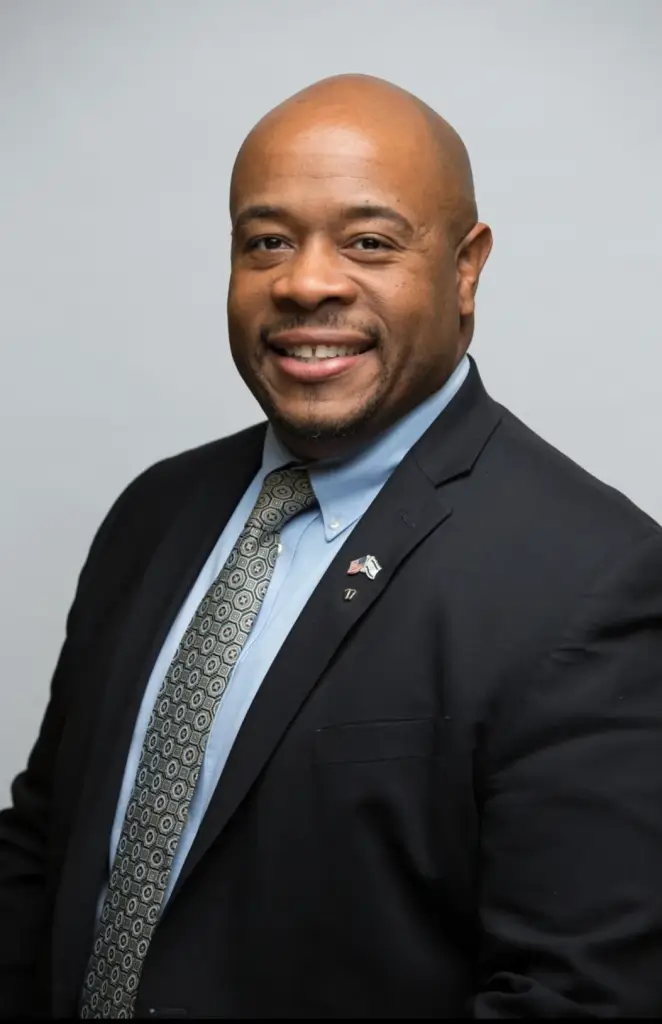
Editor’s Note: On October 20, the Fredericksburg Symphony Orchestra will kick-off its third season at Life Point Auditorium in Central Park. The man with the baton is Kevin Bartram. An accomplished musician in his own right, former college professor, and now a teacher at James Monroe High School, Bartram has brought Fredericksburg not just a symphony orchestra, but a symphony orchestra of the highest order.
On Monday, Bartram sat down with FXBG Advance to talk about his passion, his symphonic orchestra, and the transformative power of music.
To learn more about the Fredericksburg Symphony Orchestra, and to purchase tickets for the October 20 performance, visit fredericksburgsymphony.org.
FXBG Advance: Tell us about yourself, and your journey to establishing the Fredericksburg Symphony Orchestra.
KB: I had previously been a high school teacher in Maryland and had a phenomenal high school program in Maryland. From there, I earned my doctoral degree and taught 20 years at the college level, starting at Gettysburg College and ending at Mary Washington University.
In 2020 when COVID hit, I went back to my roots as a high school teacher and came to James Monroe. Simultaneously, I created this new group called the Fredericksburg Symphony Orchestra.
FXBG Advance: What size symphony do you oversee?
KB: The Fredericksburg Symphony is a 75-piece, fully professional orchestra. It’s the largest of its kind in this region, and it was designed for the purpose of providing civic pride to Fredericksburg. The kind of pride that only a really fine artistic ensemble can provide via live performances.
We’re about to open our third season at Life Point auditorium in Central Park – a superb 1,000 seat auditorium. We will probably sell out, because we sell out almost every one of our concerts. We have a superb board of directors and community support.
FXBG Advance: What was it like getting a symphony group going during a pandemic? And how did you accomplish that?
KB: I started with a few people I trust and admire and got them to commit to performing with the group. Then I got a great executive director. With a core of excellent musicians and my executive director, we began to grow by word-of-mouth.
As music director, it’s my responsibility to build the quality, and that’s what we’ve worked hard to do. We’ve built it to a level that people tell us they prefer coming here than to go to the Kennedy Center.
In fact, the pandemic proved to be the opportune time to do this. With everything closing down, other musicians were in need of a performing group. So we were able to build a 65-piece orchestra right away, and we’ve since added 10 more.
FXBG Advance: How did you do this so quickly?
KB: It’s my philosophy that you start with the product first. If you have high quality, people will come. And you have to price it properly, too.
We gathered the right musicians, executive director, and board of directors. This created the momentum.
As music director, it’s my responsibility to build the quality, and that’s what we’ve worked hard to do. We’ve built it to a level that people tell us they prefer coming here than to go to the Kennedy Center.
FXBG Advance: What is the difference between an orchestra and a symphony?
KB: An orchestra is often just a string group. A symphony orchestra has strings, as well as woodwinds, brass, and percussion. We are a symphony orchestra, as opposed to a chamber orchestra, which is a smaller version – 35 players of so – of what we have.
FXBG Advance: Tell us about the players.
KB: We have a mix of professional musicians. Some have other careers. About a third perform in several orchestras and they make a living based on what they earn that way. We have a second category who are professional musicians, but they have other careers. We have scientists from Dahlgreen, and we have a surgeon.
And finally, we have educators (music teachers) like me. We have lots of these people from Spotsylvania, Stafford, Fauquier, and beyond.
Everyone has to audition, and there’s a very high standard to get it. And these musicians are rightly proud.
FXBG Advance: What is it like to stand on that podium and lead that many people? What is it that the audience doesn’t see?
KB: As a conductor, you aren’t saying a word, and your back is to the audience, so what you’re doing is invisible to that audience. What they don’t see is the high level of communication I have with those musicians. It’s transmitted through my body language, my eyes, my expressions.
FXBG Advance: Followers of music talk about “interpreting” scores. Tell us about that, and how you do this.
KB: I’ve had the great fortune of traveling to Europe many times. When I stand in front of the statue of David, I have my own experience. But as I study that statue more, I take more from it.
We have to be open to that piece of art and all that it reveals.
With that many people on stage, there can only be one conductor. One interpreter. Everyone has his or her own opinion about a work. But a symphony orchestra won’t work if everyone plays a piece their way. That’s my role, to interpret that piece of music and make sure the musicians carry it out.
That sounds autocratic, and I suppose in some ways it is. But it’s a very deep, emotional experience.
The resonance of the performing arts is in the doing. What are we doing? Re-creating a composer’s musical line, which is fraught with emotion. It’s a very emotional thing.
Where many of us fall off is in not being open to what the arts have to teach us. People may say they hate opera, even though they’ve never seen it.
There’s something in art for all of us.
Last spring, in the second half of a concert, I invited all the children to come on the stage and sit next to a musician as we played the original music from “Aladdin.”
One kid walked off stage in the middle of the concert crying, looking like he was distressed. I conducted the rest of that concert in distress myself, thinking I had upset him.
Afterwards, I learned that the boy was autistic and mostly blind. He was crying not out of distress, but because of joy.
The resonance of the performing arts is in the doing. What are we doing? Re-creating a composer’s musical line, which is fraught with emotion. It’s a very emotional thing.
FXBG Advance: Can music help bridge our political divides?
KB: A year and a half ago, we decided to add a political element in our concert.
A friend of mine had sent me the symphonic score to one of the Ukranian national folk songs. Last minute, the day before the concert, we decided to put this into the performance.
We put a Ukranian flag behind the orchestra, and there wasn’t a dry eye in the place.
As I was leaving the stage, my last chair violinist stood up, held his hand to his heart, and he bowed. This doesn’t happen when the maestro is leaving.
Turns out he was Ukranian. I did not know that.
One has to be careful injecting politics into music, but done properly, music can help us get beyond our political leanings.
FXBG Advance: Talk about the struggles and successes of working with middle- and high-school students.
KB: My kids will be performing with the symphony on the 20th. They’ll be playing along with the professionals on a piece written for us, and at a level beyond what kids this age can normally play. We began working on it first day of school in August.
I’m not sure they understand what they are about to accomplish. Sometimes it takes several years. My job is to give them opportunities.
They’ll never forget what it is to be on that stage, performing a world premier piece by one of the leading composers in the United States.
I’m not sure they understand what they are about to accomplish. Sometimes it takes several years. My job is to give them opportunities.
FXBG Advance: You’ve achieved a remarkable track record of success everywhere you have been, but especially at the high school level. Is it simply a matter of holding kids to a high standard?
KB: No, it’s about building trust and relationships. My first year, there was very little trust with me. The kids didn’t know my background, or that I was going to stay. They just wanted to know if I’m going to be here next year.
I tell them stories from my past. The successes, and my failures.
I hold them to a high standard, but with caring.
I greet them at the door – “Hey, how was that game last night? What did you do?” Or “Hey, I love that shirt today. Tell me about it.”
We love each other, and have really bonded.
FXBG Advance: Tell me one thing people not accustomed to live performances will experience on the 20th that will surprise them.
KB: Symphony orchestra has a reputation for being stodgy, uppity, elite. People will be surprised at how down to earth it is and how exciting it is.
I’ve designed this performance around Halloween. Spooky music. There will be more young people than you expect.
To see musicians on stage working really hard is something you can’t get through a recording.
FXBG Advance: What’s on the horizon?
KB: We’re going to return named artists to Fredericksburg, and we’re looking to build a summer series here in the city.
And of course, we’re going to continue to improve as a performance group.





